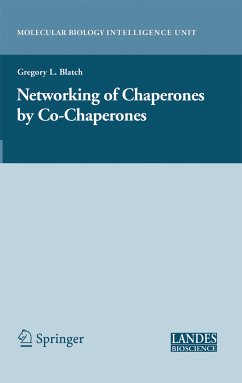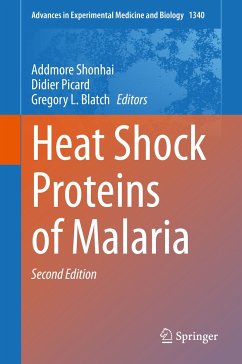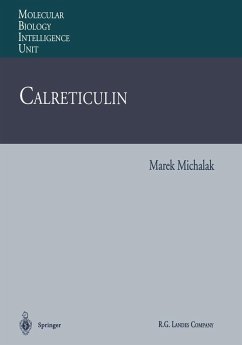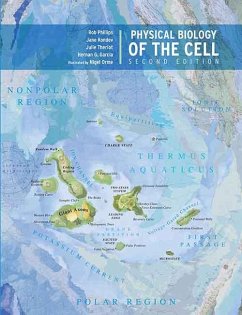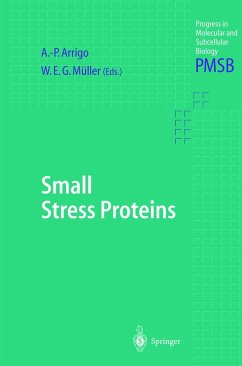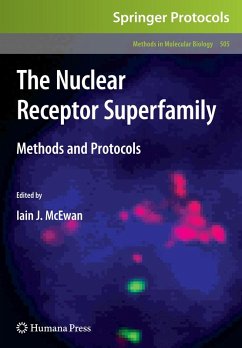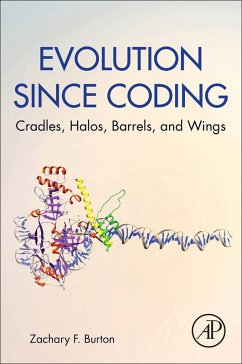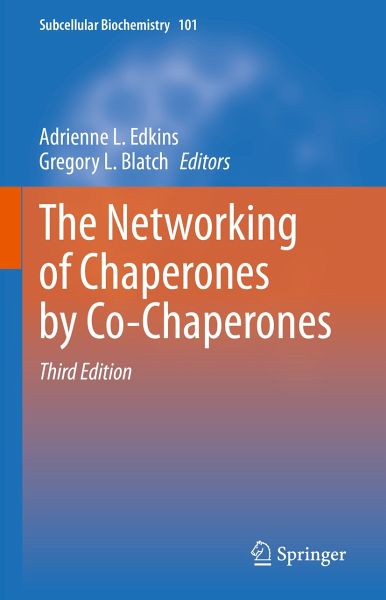
The Networking of Chaperones by Co-Chaperones (eBook, PDF)
Versandkostenfrei!
Sofort per Download lieferbar
136,95 €
inkl. MwSt.
Weitere Ausgaben:

PAYBACK Punkte
68 °P sammeln!
Co-chaperones are important mediators of the outcome of chaperone assisted protein homeostasis, which is the dynamic integration of the processes of protein folding, degradation and translocation to ensure that cellular function is finely tuned in space and time.This third edition of the book The Networking of Chaperones by Co-chaperones describes how the function of the major molecular chaperones is regulated by co-chaperones, a diverse cohort of non-client proteins. Since the second edition was released, not only has knowledge deepened on how co-chaperones act as nodes to network and functio...
Co-chaperones are important mediators of the outcome of chaperone assisted protein homeostasis, which is the dynamic integration of the processes of protein folding, degradation and translocation to ensure that cellular function is finely tuned in space and time.
This third edition of the book The Networking of Chaperones by Co-chaperones describes how the function of the major molecular chaperones is regulated by co-chaperones, a diverse cohort of non-client proteins. Since the second edition was released, not only has knowledge deepened on how co-chaperones act as nodes to network and functionalise chaperones, but an understanding of their broader biological function has started to emerge. The third edition provides new and updated chapters highlighting recent developments and emerging themes on co-chaperones, such as their extracellular functions, their role in human disease and their status as putative drug targets.
The book is a useful resource for both newcomers and established researchers in the field of cell stress and chaperones, as well as those interested in cross-cutting disciplines such as cellular networks and systems biology.
This third edition of the book The Networking of Chaperones by Co-chaperones describes how the function of the major molecular chaperones is regulated by co-chaperones, a diverse cohort of non-client proteins. Since the second edition was released, not only has knowledge deepened on how co-chaperones act as nodes to network and functionalise chaperones, but an understanding of their broader biological function has started to emerge. The third edition provides new and updated chapters highlighting recent developments and emerging themes on co-chaperones, such as their extracellular functions, their role in human disease and their status as putative drug targets.
The book is a useful resource for both newcomers and established researchers in the field of cell stress and chaperones, as well as those interested in cross-cutting disciplines such as cellular networks and systems biology.
Dieser Download kann aus rechtlichen Gründen nur mit Rechnungsadresse in A, B, BG, CY, CZ, D, DK, EW, E, FIN, F, GR, HR, H, IRL, I, LT, L, LR, M, NL, PL, P, R, S, SLO, SK ausgeliefert werden.



